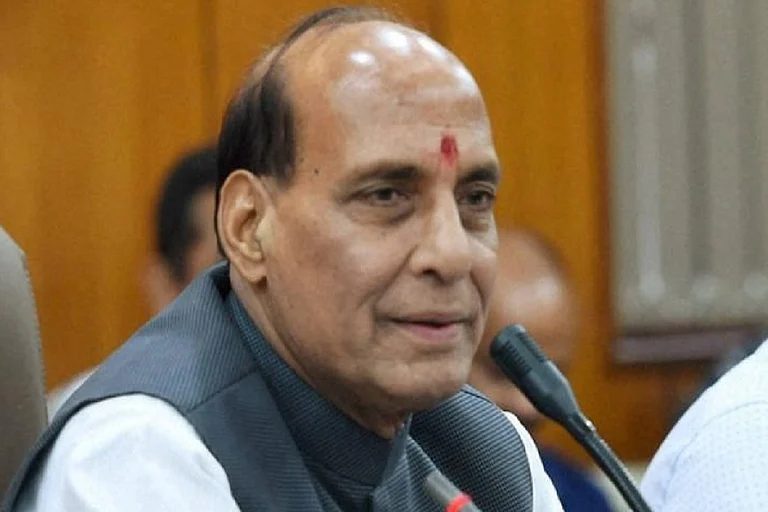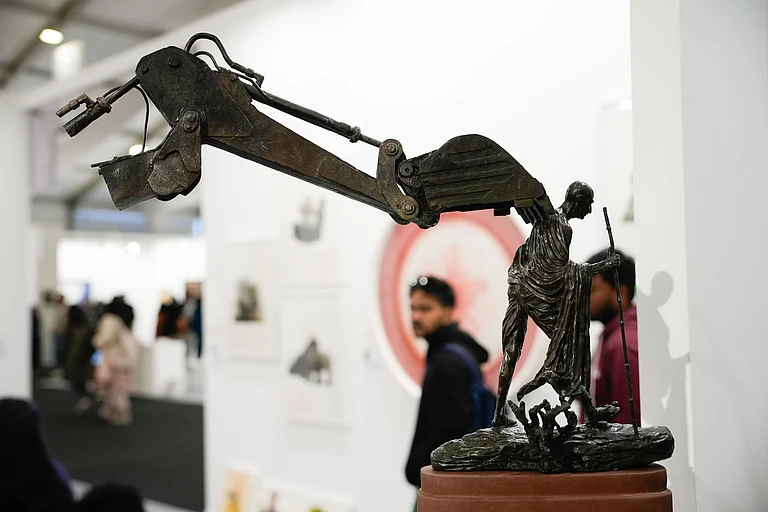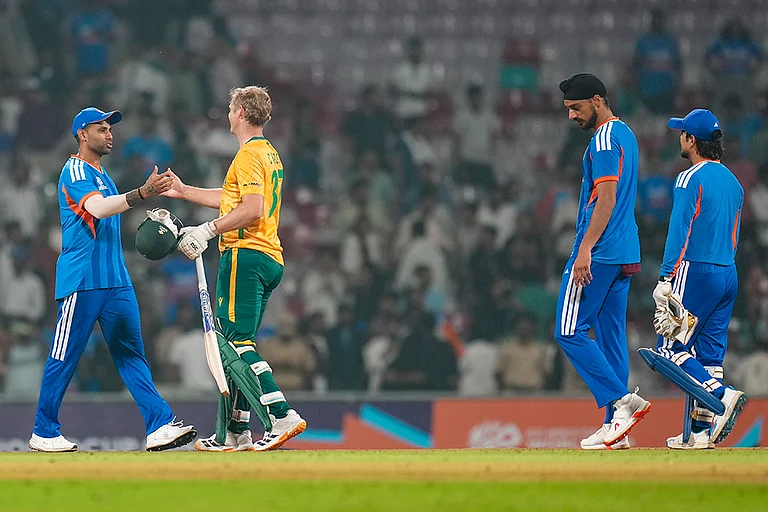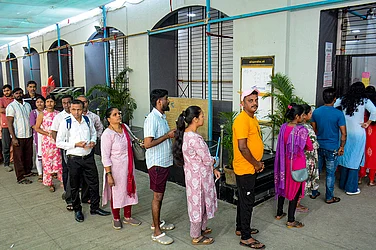
Prime Minister Narendra Modi praised the exceptional coordination of India’s Navy, Air Force, and Army, saying it “brought Pakistan on its knees swiftly during Operation Sindoor.”
Modi underscored the importance of self-reliance in defence, noting India’s tripling of defence production, successful indigenous missile programs like BrahMos and Akash.
During his visit, Modi observed MiG 29K operations, attended a Diwali yoga session, and praised the Navy and Coast Guard.
Prime Minister Narendra Modi on Monday praised the exceptional coordination among India’s three armed forces, saying the "fear instilled by the Indian Navy, the extraordinary skill demonstrated by the Indian Air Force, and the bravery of the Indian Army, along with the exceptional coordination among all three services, brought Pakistan on its knees swiftly during Operation Sindoor."
Addressing Navy personnel onboard INS Vikrant off the Goa coast, Modi described the indigenously built aircraft carrier as a "powerful symbol of Aatmanirbhar Bharat" and highlighted that its handover marked the renouncement of a major colonial legacy.
"A few months ago we had seen how INS Vikrant had given Pakistan some sleepless nights. INS Vikrant, the name itself puts an end to the courage of the enemy," Modi said. He spent a night onboard the aircraft carrier, witnessing the Navy’s air power in action, including MiG 27 aircraft performing maneuvers at sea.
Modi emphasised that a nation with self-reliant armed forces holds a strategic advantage when war is imminent. "For the armed forces to be strong, self-reliance is essential," he said, noting that India’s defence production has steadily advanced over the years, with missiles such as BrahMos and Akash proving their capabilities during Operation Sindoor.
He added that thousands of items previously imported are now manufactured domestically, with defence production having more than tripled over the past 11 years, crossing Rs 1.5 lakh crore last year. Since 2014, over 40 indigenous warships and submarines have been delivered to the Navy, with a new submarine or warship inducted roughly every 40 days.
"India's goal is to be counted among the world's top defence exporters," Modi said, highlighting that defence exports have increased more than 30-fold over the past decade, thanks in large part to the contributions of start-ups and indigenous defence units.
He also commended the Indian Coast Guard for their continuous coordination with the Navy to safeguard India’s coastline. Recalling the handover of INS Vikrant, Modi said, "Vikrant is not merely a warship; it is a testament to 21st-century India's hard work, talent, impact, and commitment."
Modi noted that on the day the nation received the carrier, the Navy renounced a major colonial symbol and adopted a new flag inspired by Chhatrapati Shivaji Maharaj. INS Vikrant, commissioned in 2022, is India’s first home-built aircraft carrier, strengthening the country’s naval presence and serving as the largest warship built in India, second operationally only to INS Vikramaditya.
During his visit, Modi observed operations on the flight deck with MiG 29K fighter jets, both during day and night, and attended a cultural programme featuring patriotic songs composed by Navy personnel commemorating Operation Sindoor. He also dined with naval families during the Bara Khana and participated in a Diwali yoga session on the deck, witnessing a spectacular steampast of warships and flypast by various aircraft, including Chetak, MH 60 R, Seaking, Kamov 31, Dornier, P8I, and MiG 29K.
"Last night spent onboard INS Vikrant is hard to put into words. I saw the immense energy and enthusiasm you all were filled with. When I saw you singing patriotic songs yesterday, and the way you described Operation Sindoor in your songs, no words can ever fully convey the experience that a jawan feels standing on a battlefield," Modi said.
"My Diwali has been special as it was spent amongst you," he added, continuing his tradition of celebrating the festival with the armed forces since 2014.
(with PTI inputs)




























